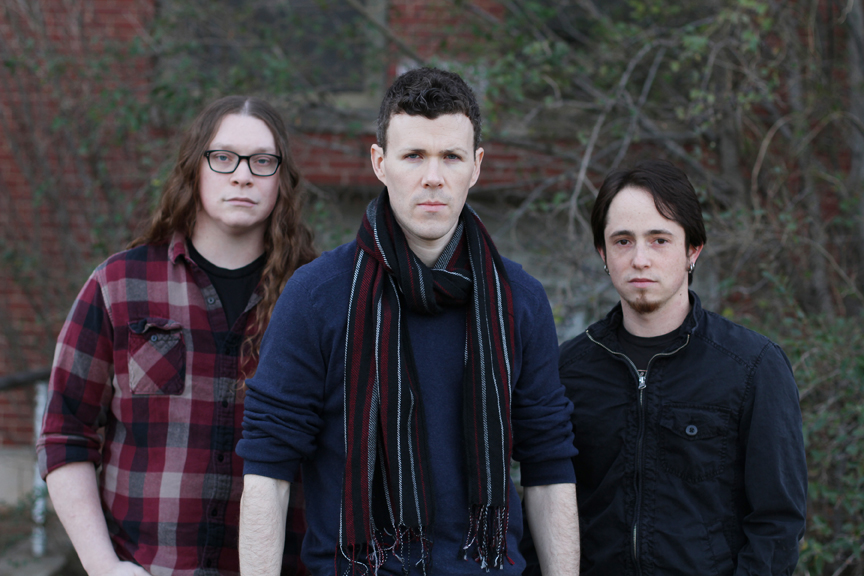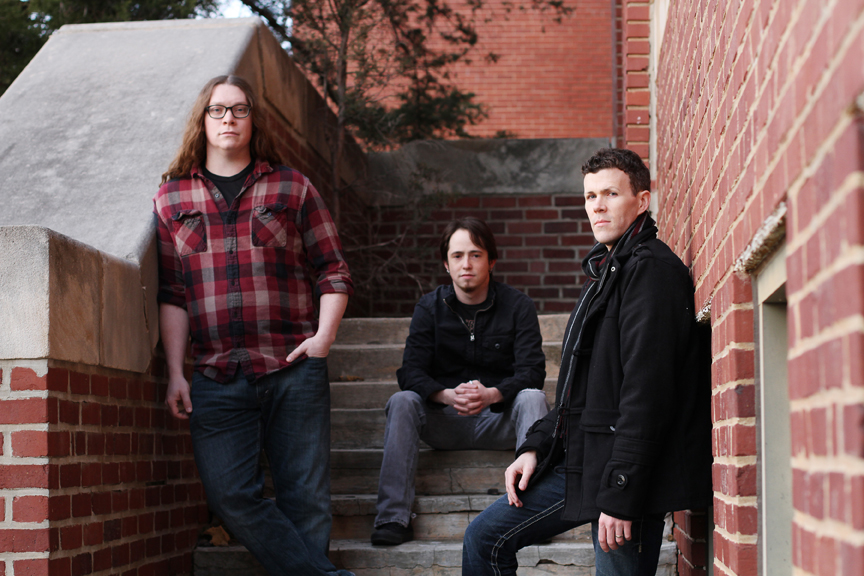Clay Withrow Talks 'Between The Madness,' New Album by Oklahoma Prog-Rockers Vangough
All the latest guitar news, interviews, lessons, reviews, deals and more, direct to your inbox!
You are now subscribed
Your newsletter sign-up was successful

Vangough’s new album, Between The Madness, is the third studio project from the Oklahoma City-based prog-rock band.
It also marks the debut of new drummer Kyle Haws, who joins bassist Jeren Martin and founder/vocalist/guitarist Clay Withrow on the 70-minute project.
Between The Madness is a multi-textured combination of vocal and instrumental tracks that were produced by Withrow and mixed by the band’s longtime engineer, Sterling Winfield.
In this interview, Clay Withrow discusses the challenges of finding musicians who understood his vision, how Vangough evolved from something of a one-man project to a collective, and what teaching college-level classes has taught him about his own work.
GUITAR WORLD: Is there much of a scene for this type of music in Oklahoma?
Not at all, unfortunately. I mentioned Fates Warning and Dream Theater. They always skipped Oklahoma when they were on tour, so we ended up driving to Dallas or Austin to see them. The closest we get is Atlanta. That’s where we have to drive before we hit the progressive scene, and then the East Coast and further north.
How difficult was it for you to find musicians?
All the latest guitar news, interviews, lessons, reviews, deals and more, direct to your inbox!
It was a long process. That was the early story of Vangough. It started out as my own project. I called it the Clay Withrow Band. I wasn’t creative enough to come up with a cool name. I had friends of friends who played instruments, and I kept upgrading as I was going through the process through the years. I got to the point where I had one of the best drummers in the city, and then one of the best bass players, and it led to this status that “Vangough happens to have some of the best musicians.” That helped me scout for people whenever I needed them. Now I feel I’m in the lucky position where if I need somebody for whatever reason, they know they’re playing with the best in the business locally.
How much did the previous groups have in common with what became Vangough?
I absolutely think it did affect my direction, because early on it was just me in the same basement, and it was kind of a pastiche of this sound and that sound. When our first drummer, Brandon Lopez, joined the band, that had a huge effect. I remember thinking, This will affect how I write in the future. I’m going to write more stuff like this because this guy can handle it. Then, when we got Jeren, he brought a lot of experience in terms of his ear being attuned to what sounds good, what blends well together, and which parts need to be expanded upon.
He’s been a huge factor in how I write. When we got Kyle for this album, he was my long-lost soul mate. When he joined, I thought, Why didn’t we meet when I was in high school? We sat in the basement for hours and woodshedded. That, more than anything, affected how I wrote music, because for the first time ever I had a drummer who was willing to sit down with me every day and just jam and see how things unfolded. Going forward, that’s going to be one of the biggest factors in how Vangough evolves sonically and arrangement-wise.
You are a trained musician and you teach college classes. How did that come about?
I did take some guitar lessons in high school and some voice lessons when I was in college, and I remember sitting through a few music theory classes at OU when I was studying there. That was the extent of my formal training. When I got the offer to teach at the University of Central Oklahoma, I went to town doing my homework. I bought every music theory book that I could and I studied my ass off. It was like going to school again, but on my own.
I would take out my pencil and my notation paper and go through them. In a very short period of time I taught myself what I could so that I could teach it. I know that sounds crazy, but I felt like a fraud being in that position and being able to teach when I didn’t go through an actual degreed program like they were going through. But I got that opportunity because Manikin Parade and Game On! caught a lot of people’s attention at the school. Strangely enough, Manikin Parade got passed around to some of the directors and the CEO of the school, and they were all fans of the CD.
I’m good friends with the director, but this was before, it was very early on, and when I asked, they told me that it was because of Vangough and that the CD helped me get in the door. That’s probably the best thing Vangough has done for me monetarily, ever. I am still teaching. Typically, I teach between three and five classes in a semester. I teach songwriting and music business studies.
What are the teaching challenges in our world of limited attention spans and people who can’t put their phones away?
That was a big challenge for a long time. Teaching is something I had to learn day to day, and early on it was very difficult. I remember having to put on a different hat and telling students to put away their phones and not do this and that because it’s not conducive to what we’re doing in a classroom. It is a challenge, but I feel like the students that we have now are getting better and there’s less of that. The school has been around for about four years. I don’t run into it as much as I did at the very beginning.
How does teaching make you a better student of your craft?
For example, I’ll have the students work on a project, whether it’s for business or songwriting, and they’ll come up with something that I hadn’t really considered. They’re coming up with great ideas and I will totally admit that it was a brilliant idea. I’ll leave the classroom and make a note on my phone: “Do this when you get home.” It’s been a huge benefit, actually.
That’s why I love teaching — not just because I feel like I can impart everything I’ve experienced in the business, but also because sometimes you need somebody in a role of leadership to direct things and the students will come up with great things on their own. I’m at a point with music theory where I’m very confident. It’s burned into my brain because I use it every week. As far as guitar and singing, I have to stay on that on a regular basis because it’s a skill I feel that I lose very quickly if I’m not persistent.
Photo courtesy of Vittek Public Relations
Read more of Clay Withrow’s interview here.
— Alison Richter
Alison Richter interviews artists, producers, engineers and other music industry professionals for print and online publications. Read more of her interviews right here.





Alison Richter is a seasoned journalist who interviews musicians, producers, engineers, and other industry professionals, and covers mental health issues for GuitarWorld.com. Writing credits include a wide range of publications, including GuitarWorld.com, MusicRadar.com, Bass Player, TNAG Connoisseur, Reverb, Music Industry News, Acoustic, Drummer, Guitar.com, Gearphoria, She Shreds, Guitar Girl, and Collectible Guitar.
